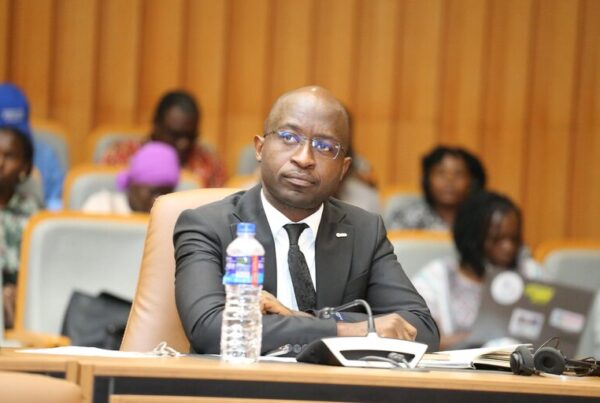Brief facts
In 1983 Force de Liberation Africaine de Mauritanie (FLAM) requested to have a discourse with the government and to raise their concerns about the discriminatory nature of the President Ahmed Ould Daddah (first Mauritanian President) vision of Arabization, when he took over in 1966. President Ahmed Ould Daddah wanted to build a State that used Arabic as its official language and had Arab – Berbers in the top economic and political positions.
The aim of the regime was to discriminate against black Mauritanian (Haratines) who are originally form sub – Saharan Africa but they were captured to serve as slaves in Mauritania in the 14th Century and hence they were to continue being slaves.
In 1986 Mauritania ratified the African Charter but in the same year,/ members of FLAM were arrested and accused of attempting a coup. In April 1989 the Mauritanian government expelled, between 60,000 to 100,000 black Mauritanians referring to them as non – Mauritanians.
In September 1990 military men and public servants who were alleged supporter of FLAM and purportedly aided FLAM in the alleged coup plot were also arrested and they were not taken before any court.
Later that year about a dozen of the accused persons were tortured and executed at an isolated village in Northern Mauritania called “Inal”.The rest either dead in custody or disappeared. Twenty – eight black Mauritanians were executed on 28th November 1990, Mauritania’s Independence Day.
Issues
– Whether payment of compensation to victims of human rights violations invalidates the deliberations of ACmHPR
– Instances where the ACmHPR can consider violations that occurred prior to the entry into force of the ACHPR
– Exemption from rule on exhaustion of local remedies: in instances where such remedies are non-existent de jure; in instances where the justification for the rule, i.e. respondent is informed of accusation before international legal action, is evident; in instances where it is “neither practicable nor desirable” to require complainants to exhaust these
– Customary principle of pacta sunt servanda and non derogability of rights guaranteed under African Charter
Alleged Violations of the African Charter on Human and Peoples’ Rights
Article 2 – Right to Freedom from Discrimination
Article 3 – Right to Equality before the Law and Equal Protection of the Law
Article 4 – Right to Life
Article 5 – Prohibition of Torture and Cruel, Inhuman and Degrading Treatment
Article 6 – Right to Personal Liberty and Protection from Arbitrary Arrest
Article 7 – Right to Fair Trial
Article 9: Right to Receive Information and Free Expression
Article 10 – Right to Freedom of Association
Article 11 – Right to Freedom of Assembly
Article 12 – Right to Freedom of Movement
Article 14 – Right to Property
Article 15: Right to Work
Article 16 – Right to Health
Article 18 – Protection of the Family and Vulnerable Groups
Article 19 – Right of All Peoples to Equality and Rights
Article 26 – Duty to Guarantee Independence of Courts
Status of the Communication
Filed against Mauritania in 1991 due to the serious and massive human rights violations against the Black Mauritanian citizens.
Seven years after it was filed (1992 – 1999), the Institute for Human Rights and Development in Africa (IHRDA) met with Collectif des Veuves et Ayants Droit and Comité de Solidarité avec les Victimes de la Répression en Mauritanie and IHRDA agreed to represent the victims of Communications 98/93, 164/97 – 196/ 97 mainly focused on extrajudicial killing.
The ACmHPR reaffirmed that even through the government compensated some of the family members of the victims, they are still not debarred from presiding over the communications, it all so held that the exhaustion of local remedies apply only in situations where it was available and accessible, it also affirmed that the ACmHPR can only consider alleged human rights violations that occurred while the African Charter was in force, the ACmHPR emphasized that even in state of emergency charter provisions are to be safeguarded(non – derogability of rights).
The ACmHPR held that the respondent state violated articles 2, 4, 5, 6, 7(1)(a-d), 9(2), 10(1), 11, 12(1), 14, 16(1), 18(1) and 26. This communication was decided on merits in Algiers, Algeria (11 May 2000).
The ACmHPR made the following recommendations:
1) to establish an independent enquiry in order to clarify the fate of persons considered as disappeared, identify and bring to book the authors of the violations perpetrated at the time of the facts arraigned;
2) to replace the national identity documents of Mauritanians which were taken at the time of their expulsion and ensure the return of these citizens Mauritania, with restitution for the belongings lost during expulsion;
3) to ensure payment of a compensatory benefit to the widows and beneficiaries of the victims of the above-cited violations;
4) to reinstate dismissed and/or forcibly retired workers;
5) to carry out an assessment of the degrading practices and to put in place a strategy aimed at their total and definitive eradication; and
6) to take appropriate administrative measures for the effective enforcement of Ordinance nº 81-234 of 9 November 1981, on the abolition of slavery in Mauritania.
Litigation Partners
Malawi African Association, Amnesty International, Ms Sarr Diop, Union Interafricaine des Droits de l’Homme and RADDHO, Collectif des Veuves et Ayants Droit, Association Mauritanienne des Droits de l’Homme and in 1992 IHRDA became a partner because we represented the victims whose cases related to extrajudicial killing.
Implementation
IHRDA is facilitating the implementation of recommendation 1 and 3, Open Society Justice Initiative is working on the implementation of recommendation 2. Together they conducted a joint mission in 2004 to monitor the implementation process for the Mauritania case.





